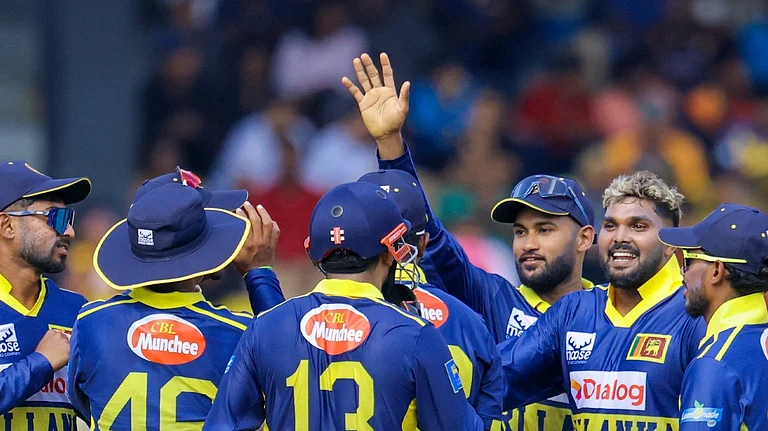While the opinion in India is divided, US analysts are expectedly clear:India must seize the opportunity to settle the Kashmir dispute by showing "flexibility"and reciprocating Pakistani President Pervez Musharraf’s recent peaceoverture. In an interview to a New Delhi-based television channel, Gen.Musharraf had suggested that Pakistan would give up its claim over Kashmir ifIndia accepted his peace proposals— a phased withdrawal of troops in theregion and self-governance for Kashmiris.

Ambassador Teresita Schafer at the Center for Strategic and InternationalStudies described Gen. Musharraf’s statement as "very significant." Thepresident has made a number of statements on Kashmir that go beyond Pakistan'soriginal position - that a plebiscite is required. Ambassador Schaffer notes itis not the first time that he has proposed that a solution should focus onself-governance, or that it should involve "soft borders" across whichKashmiris could come and go. But it is the first time Gen Musharraf hasexplicitly acknowledged that his proposal would involve Pakistan giving up itsclaim to Kashmir, subject of course to the condition that India is willing tochange its approach as well, she said. The proposal is not likely to win supportfrom many in Pakistan, specifically the intelligence service, Islamist partiesand even some within Gen. Musharraf's military.
In a sign of the domestic resistance to the proposal, a Pakistani foreignoffice spokeswoman clarified Gen. Musharraf sought "reciprocal flexibility"from India. The president "was arguing for flexibility on both sides for anegotiated settlement of the Kashmir dispute," spokeswoman Tasnim Aslamsaid in a statement. "Essentially, what he said was that Pakistan was ready toshow flexibility provided India did the same. It was only through reciprocalflexibility that a negotiated settlement, acceptable to all sides, was possible."

Dr. Marvin Weinbaum of the Middle East Institute notes, "At times Musharrafgets out ahead of his own government and, perhaps even his military. This may beanother one of those occasions." However, he said, Gen. Musharraf’s overtureon Kashmir was very forthcoming. Dr. Weinbaum says it is critical that Indiatake the proposal seriously and use it as the basis for mutual exploration ofwhere the proposals on autonomy might lead. India "can't expect Musharraf todisplay flexibility if it leaves him with nothing to show for his efforts.Without some reciprocation the jihadis will have another issue with which tohammer him and reduce his already eroding domestic standing." He thinksthat with some forthcoming response from India in hand Gen. Musharraf would gainthe leverage of broader public opinion to use against the jihadis. "Of course,if anything like an agreement could be negotiated he could take it into nextyear's elections," he says, adding, "And then there is the internationalkudos that he receives and can use to fend off his foreign critics who arepressing him on his policies toward extremist groups."

Dr. Stephen Cohen of the Brookings Institution agrees India needs to reachout to Gen. Musharraf. But, he adds, the Pakistani president has offered similarproposals many times in the past "and knows that India will not or cannotrespond, so he gets great PR brownie points at zero cost." But hewonders "what would happen if India actually came up with some ideas of itsown."
Ambassador Schaffer says that while Gen. Musharraf will take a lot of heat athome for his statement, it provides an important opening for India to re-examinehow it can proceed on Kashmir, and to think about what "autonomy" and "self-government"could mean in practice, and how India could relate to Pakistan on Kashmir in thelong term.
"I'm not suggesting that India ought to accept the whole idea in oneswallow, only that it ought to take this seriously as the opening of anegotiation—and to give a similar signal of willingness to change its ideas ofhow Kashmir should be governed and administered, provided India, Pakistan (andin some fashion the Kashmiris) can work out mutually acceptable details," shesays, adding, "If India doesn't respond, Musharraf will wind up looking goodboth domestically and internationally."

Dr. Walter Andersen at the Johns Hopkins University’s School of AdvancedInternational Studies doubts the proposal would get very far, but, he notes, "smallincremental steps will be needed and as they succeed the possibilities ofsomething more significant will present itself."
























